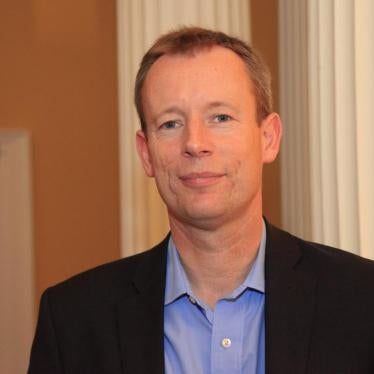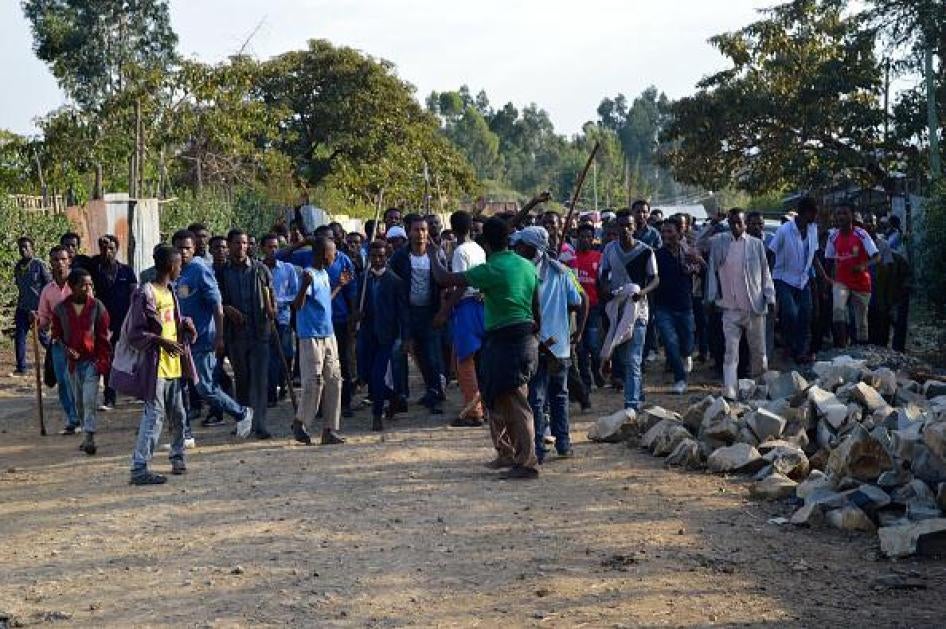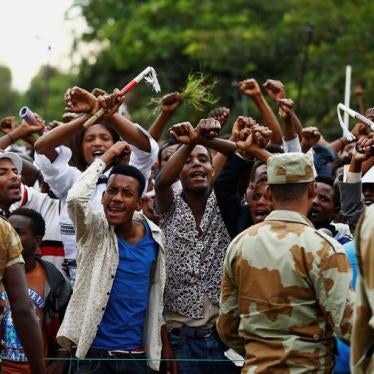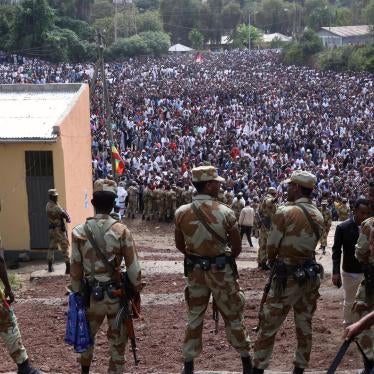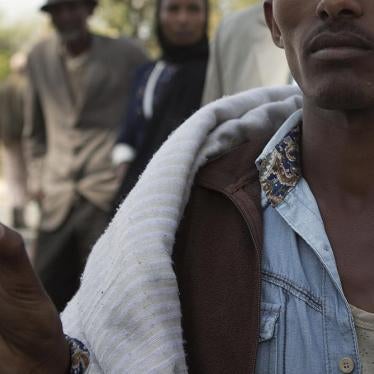The Ethiopian government is engaged in its bloodiest crackdown in a decade, but the scale of this crisis has barely registered internationally. According to Human Rights Watch, more than 400 people, including many children, have been killed by the country's security forces in Oromia, Ethiopia's largest region, with lethal force unleashed against largely peaceful, student-led protests.
For the past seven months, security forces have fired live ammunition into crowds and carried out summary executions. While students were first on the streets, many others have joined them, including teachers, musicians, opposition politicians and healthcare workers. Tens of thousands of people have been arrested, some of whom remain in detention without charge, and there are credible reports that detainees have been tortured or beaten – some of them in public. Hundreds of other people have been forcibly disappeared.
In normal circumstances, a crackdown on this scale would generate large-scale media attention and prompt strong international censure. But global media coverage has been very limited, in part because of Ethiopia's draconian restrictions on media reporting and the difficulties journalists face in accessing the region. The response of governments internationally, including the British government, has also been extremely muted.
The reason for this is not a lack of information: diplomats in the country have a fairly good idea of what is going on in Oromia. Instead, it appears to be a flawed political calculation that the UK's massive investment in Ethiopia's development efforts (over 300 million pounds of aid is provided annually) would be undermined by public criticism or greater pressure on the government to rein in its abusive security forces.
The other obstacle is Ethiopia's acute food crisis, where a severe drought – the worst since the famine of 1984-85 – has left 18 million people in need of aid. Global attention on this issue has led many governments around the world to overlook or downplay the other very urgent crisis unfolding in Oromia.
But these trade-offs are short-sighted and counter-productive. Ethiopia's repression and its deepening authoritarianism hinder, rather than help, the country to combat food insecurity, promote development and tackle a range of other challenges. And they create the conditions for further instability and polarisation.
Indeed, it was the very lack of respect for rights in the Ethiopian government's approach to development that first triggered unrest in Oromia last November. The early protests were a response to the so-called 'Addis Ababa Integrated Development Master Plan', which proposed a 20-fold expansion of the municipal boundary of the capital.
Protesters objected that this top-down initiative from the government, introduced without meaningful consultation or participation of the affected communities, would displace thousands of ethnic Oromo farmers from land around the city. Those displaced by similar government initiatives over the past decade have rarely received compensation or new land on which to rebuild their lives – and protesters feared a repeat of this experience on a larger scale.
Concerns were also expressed about mining and manufacturing projects in Oromia and their impact on the environment and access to water. In mid-January 2016, the government announced it had "cancelled" the Master Plan. But despite this, the government does not seem to have changed its approach (it is still marketing land to investors, for example), there has been no let-up in the repression, and the protests continue. The government's violent response and the rising death toll have further inflamed the situation and decades of historic Oromo grievances around cultural, economic and political marginalisation have come to the fore.
With or without the plan, the forced displacement of farmers looks likely to continue – as it has in many parts of Ethiopia - unless the Ethiopian government fundamentally changes its approach to development. That would mean treating communities as genuine partners in the development process, meaningfully consulting them, and allowing them to shape development projects. And it should mean opening up space for peaceful dissent and political opposition, as well as independent media.
In the short-term, the Ethiopian government could ease tensions by releasing all those arbitrarily arrested and imprisoned, establishing a credible independent investigation into the killings and other violations – with those responsible for abuses held to account – and it could start a dialogue with the Oromo community about their legitimate grievances that have fuelled these protests.
But given the awful rights record of the government in Addis this seems highly improbable without stronger international pressure. As a major development partner to Ethiopia – including support for work in the Oromia region itself – the British government should use its leverage more assertively and help galvanise a concerted international response – one which highlights, to the Ethiopian government, the cost of its ongoing repression. And it should press the Ethiopians to pursue a development strategy that respects human rights, rather than tramples all over them.
